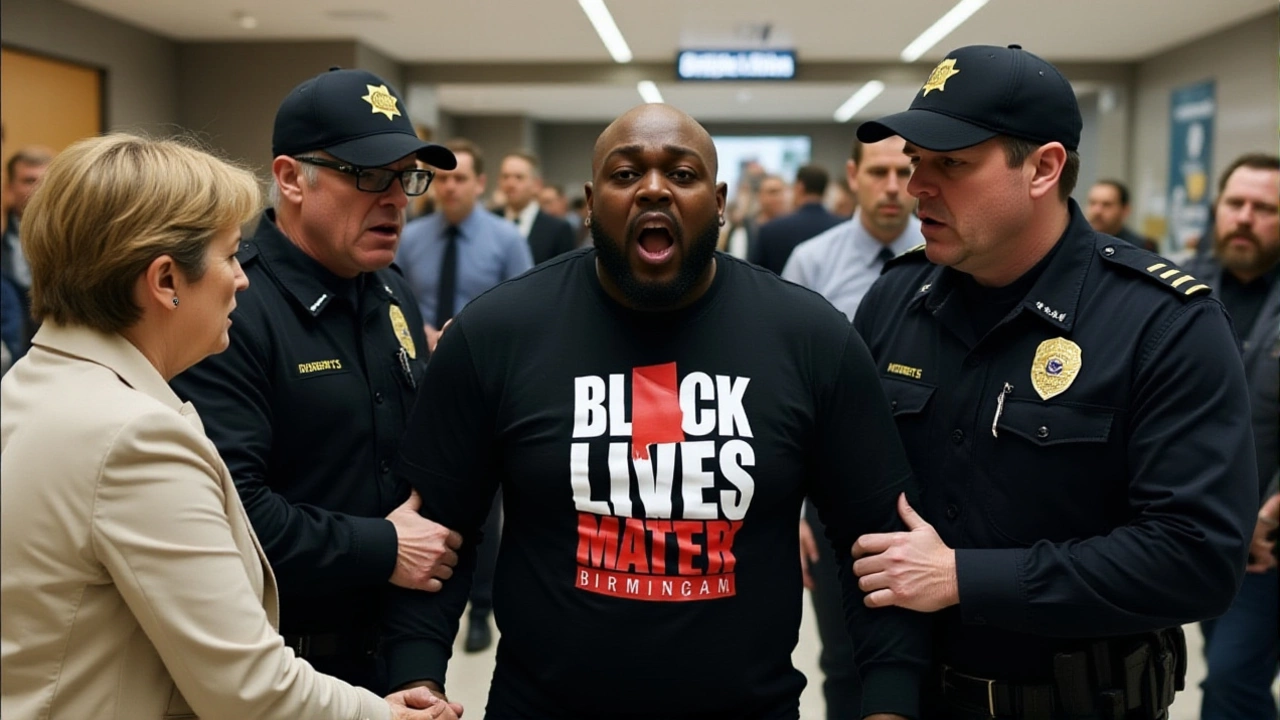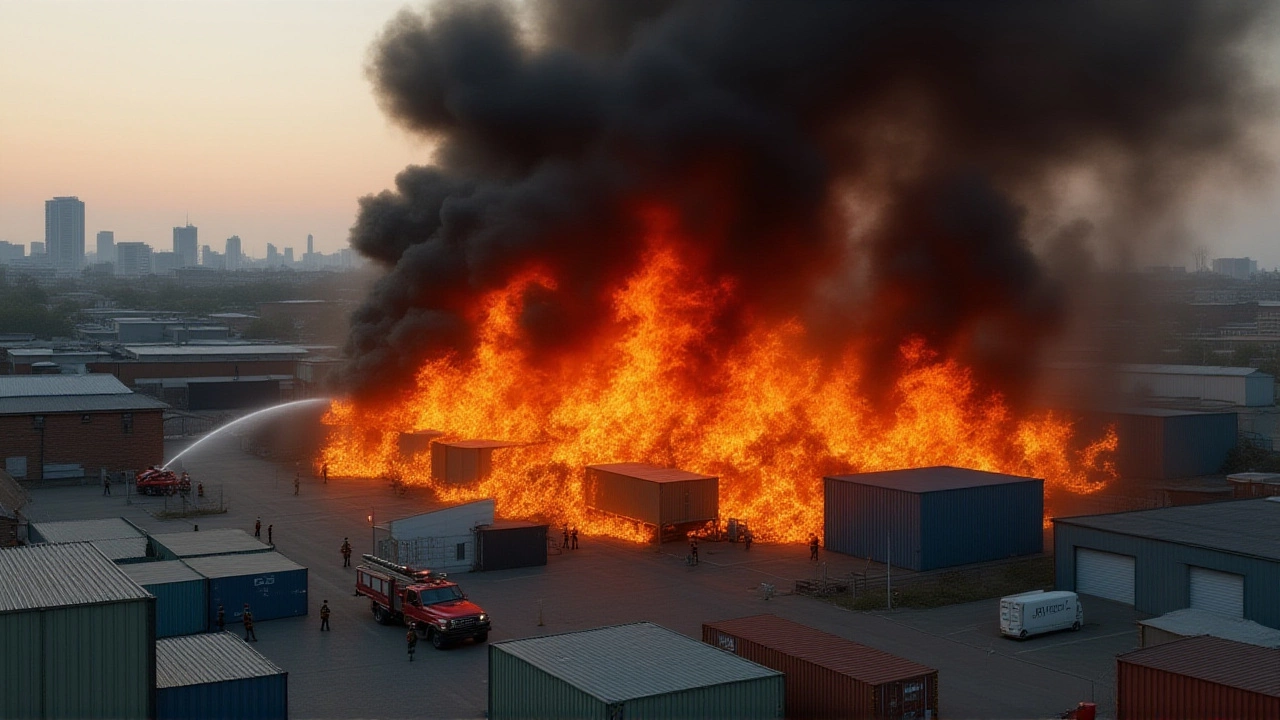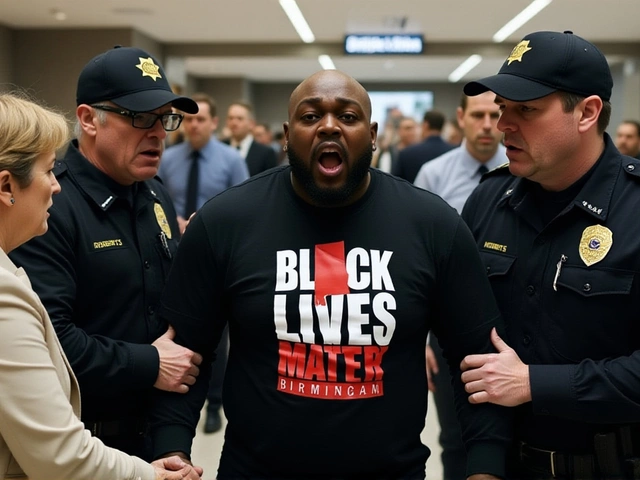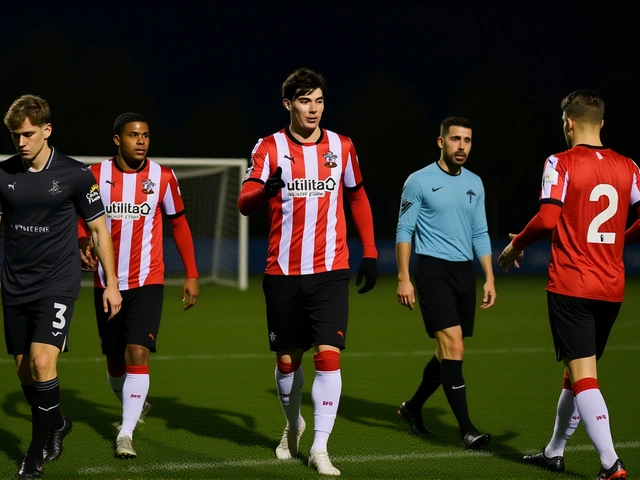
On August 22, 2025, a fire ripped through the Walmart at 209 Lakeshore Parkway in Homewood, Alabama, leaving over $130,000 in damage and shutting down the store for the rest of the day. The blaze wasn’t accidental—it was set by Mercutio Terrell Southall, a 40-year-old Birmingham resident and longtime activist tied to the Jabari Peoples protest. Police say Southall spent hours planning the attack: filling a shopping cart with rags, charcoal bags, paint thinner, and small engine fuel, then returning later to ignite it while demonstrators marched downtown. The timing wasn’t random. He was at Homewood Soccer Park at 11:35 a.m., actively participating in the protest before slipping away to carry out the act. By 2:30 p.m., the store was engulfed.
Prepared in Plain Sight
What makes this case chilling isn’t just the damage—it’s the precision. Surveillance footage showed Southall calmly pushing the cart through the clothing aisle, placing it near a display of winter coats, then walking away. He didn’t rush. He didn’t look around nervously. He waited. And when the crowd of protesters began moving toward downtown Homewood, he returned—alone—and lit the cart. Firefighters arrived within minutes, but the flames had already spread to shelves, signage, and HVAC systems. The Homewood Fire Department confirmed the damage matched Walmart’s $130,000 estimate: melted plastic, charred drywall, and ruined inventory. The store didn’t reopen until the next morning.
A History of Protest, A Pattern of Confrontation
Southall isn’t new to police radar. His record stretches back a decade. In 2015, he was arrested in downtown Homewood during a Black Lives Matter demonstration and pleaded guilty to disorderly conduct and resisting arrest. Then, in 2016, he was convicted in Montgomery County, Alabama, for possessing a firearm at a protest—a felony that, under state law, carries a mandatory minimum sentence. Neither conviction silenced him. Instead, they seemed to harden his approach. Friends describe him as passionate but increasingly disillusioned. "He used to believe in marches," one longtime associate told ABC 33/40. "Now he says the system only listens when it burns."
Homewood police didn’t need witnesses to link him to the fire. Digital evidence did it for them. Cell tower pings placed him at the soccer park, then at Walmart’s parking lot at 1:45 p.m. Security cameras caught his face entering the store twice. A store employee who recognized him from past visits confirmed his identity to investigators. The case moved fast. By September 8, 2025, the Homewood Police Department announced charges of first-degree arson and first-degree criminal mischief under Alabama law. Southall was arrested the same day and released on bond shortly after, according to local media.
Why This Matters Beyond One Store
This isn’t just about a Walmart. It’s about the fracture lines in how protest is perceived—and policed—in America. For years, activists have pushed for nonviolent resistance. But as frustration grows over systemic injustice, some are turning to property damage as a form of leverage. Southall’s actions don’t represent the majority of demonstrators, but they reflect a dangerous escalation. The Jabari Peoples protest itself, while details remain scarce, was likely sparked by a local incident involving police and a Black resident—perhaps another name lost to the headlines. Southall’s choice to target a corporate giant like Walmart speaks volumes: he saw it as a symbol of economic inequality, not just a store.
Community leaders in Homewood are split. Some condemn the fire outright. "You don’t hurt the very people you claim to protect," said Reverend Eleanor Hayes of New Hope Baptist Church. Others, while not endorsing violence, point to the deeper issue: "Why does it take a fire for people to notice that our kids can’t walk to the grocery store without being followed?"

What Comes Next?
As of now, no court date has been scheduled. Southall remains free on bond, and prosecutors haven’t indicated whether they’ll pursue enhanced penalties given his prior convictions. Legal experts say the arson charge alone could carry up to 20 years in prison under Alabama law, especially since the fire endangered lives—even though no one was injured. The Homewood Police Department has closed its investigation, stating no accomplices were involved. But the ripple effects are just beginning.
Walmart has pledged to review its security protocols across Alabama, particularly in areas with recent protest activity. Meanwhile, local advocacy groups are preparing for a surge in both support and backlash. A coalition of Black-owned businesses in Homewood has started a fund to help repair the store’s exterior—a gesture meant to rebuild, not retaliate. "We don’t want this to become a war," said Malik Reynolds, owner of the nearby Homewood Grocer. "We want justice. But justice shouldn’t mean burning down our own neighborhood."
Background: The Jabari Peoples Connection
Though details about the Jabari Peoples incident remain unconfirmed by official sources, local rumors suggest it involved a fatal police shooting in Jefferson County earlier this year. No charges were filed, and the case was closed without public explanation. That silence fueled the August 22 protest. Southall’s presence at the event wasn’t coincidental—he’s been vocal about similar cases in Alabama since 2014. His actions, however, have shifted the conversation from accountability to destruction.
Frequently Asked Questions
How did police identify Mercutio Terrell Southall as the suspect?
Homewood Police used a combination of surveillance footage, cell tower data, and eyewitness identification to trace Southall’s movements. He was seen entering Walmart twice—once to load the cart and again to ignite it—while his phone pings placed him at Homewood Soccer Park at 11:35 a.m. and back at the store at 2:28 p.m. A store employee who had interacted with him during prior protests confirmed his identity to investigators.
What are the legal consequences Southall could face?
Under Alabama law, first-degree arson is a Class A felony punishable by 10 to 99 years in prison. Given Southall’s prior felony conviction for firearm possession at a protest, prosecutors may seek enhanced sentencing under habitual offender statutes. First-degree criminal mischief, for property damage over $10,000, adds another 1 to 10 years. His bond was set at $50,000, but if convicted, he could face decades behind bars.
Is this an isolated incident, or part of a larger trend?
While property damage during protests has increased since 2020, targeted arson at retail chains remains rare. In 2023, similar incidents occurred in Minneapolis and Portland, but none resulted in felony arson charges as severe as this one. Southall’s prior record makes him an outlier—not just as an activist, but as someone who escalates tactics from civil disobedience to criminal destruction. Law enforcement agencies are now tracking similar patterns nationwide.
Why target Walmart specifically?
Walmart is seen by many activists as a symbol of economic disparity—low wages, corporate profits, and limited investment in Black neighborhoods. In Homewood, residents have long complained about poor inventory selection and high prices despite the city’s median income being below state average. Southall reportedly told a friend, "They sell us food we can’t afford and call it charity." The store’s location near a predominantly Black residential area made it a symbolic target.
Has the Black Lives Matter movement officially responded to this incident?
No national or local chapter of Black Lives Matter has endorsed Southall’s actions. In fact, the Birmingham chapter issued a statement condemning the fire, calling it "a betrayal of our principles." They emphasized that their movement seeks systemic change through policy, not destruction. Southall, while identifying as an activist, was not affiliated with any formal organization at the time of the incident.
What’s being done to prevent future incidents like this?
Homewood Police have increased patrols around major retail corridors during protest events. Walmart has installed additional AI-powered facial recognition cameras at its Homewood location and is working with city officials to create a rapid-response protocol for protest-related emergencies. Meanwhile, community leaders are pushing for town halls between residents, police, and corporate representatives to address underlying grievances before they turn violent.






Write a comment